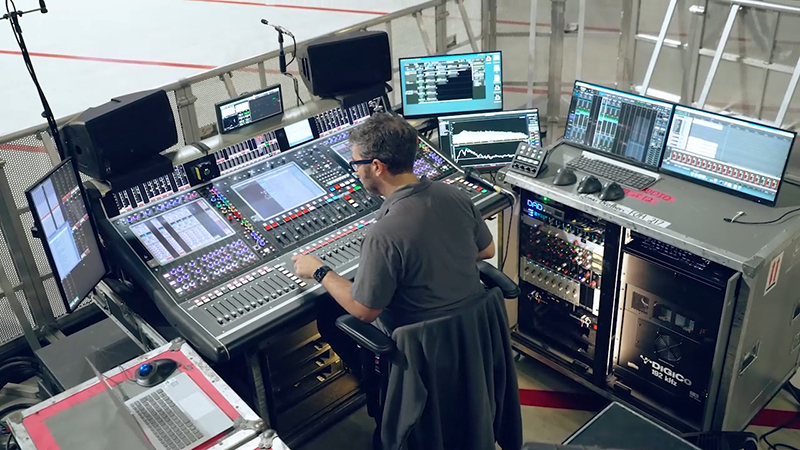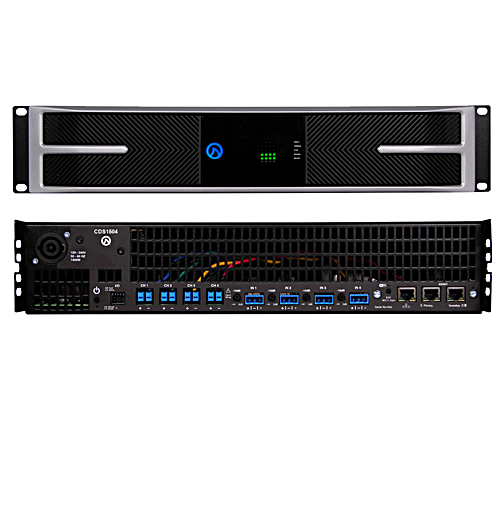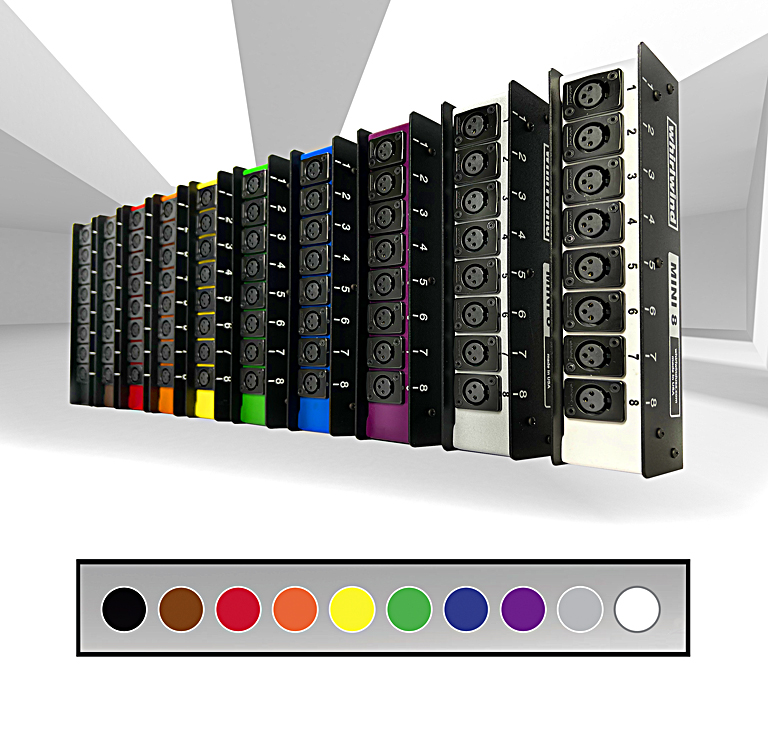
ANAHEIM, CA – TASCAM will be showcasing the Sonicview Recording Mixer line—both the Sonicview 16XP and Sonicview 24XP—during NAMM at booth #17906.
More details from TASCAM (www.tascam.com):
Both units incorporate state-of-the-art technology and a new multi-screen user interface called VIEW (Visual Interactive Ergonomic Workflow) to allow easy operation and control of all system parameters using completely customizable touch screens, user-definable buttons, and intuitive control software. Their rich feature set makes the TASCAM Sonicview digital recording and mixing consoles an exceptional choice for touring, installed sound, recording studios, and broadcasting.
TASCAM Sonicview consoles integrate beautifully into the most sophisticated production environments—thanks to their included 64-In/64-Out Dante interface, a 32-bit/96 kHz multi-channel USB audio interface, built-in 32-track multi-track SD recording* (*standard in the US market only as “XP” model), Class 1 Premium mic preamplifiers, and wealth of I/O. These recording mixers offer no-compromise audio quality, including a 96 kHz, 54-bit float FPGA mixing engine, continuous high-definition 96 kHz sampling, and 32-bit analog-to-digital converters. The mixing engine’s float-point processing makes it possible to flexibly change levels without compromising resolution and FPGA mixing engine ensures ultra-low latency of 0.51ms, even in analog-to-analog connections. The result is no-compromise performance, including with Dante networks and in-line monitoring systems.
TASCAM Sonicview recording mixers offer multiple ways to record. In addition to its integrated audio interface, the TASCAM Sonicview 24XP and TASCAM Sonicview 16XP come with a preinstalled IF-MTR32 integrated multi-track recording card* (*US market only as “XP” model), enabling you to capture 32 channels directly to an SDXC card. In regions other than the US, the optional IF-MTR32 can easily be installed into one of the two open expansion slots to enable 32-channel multi-track recording. The SD recorder supports simultaneous 32-channel punch-in/punch-out, pre-record, auto-record, and markers.
The TASCAM Sonicview 16XP and TASCAM Sonicview 24XP differ in frame size and the number of physical inputs, mic preamps, faders, and touch screens. The TASCAM Sonicview 16XP offers 16 physical input channels with 100mm motorized faders and TASCAM’s top-of-the-line Class 1 HDIA (High-Definition Instrumentation Architecture) microphone preamps, while the TASCAM Sonicview 24XP provides 24 physical input channels with 100mm motorized faders and the Class 1 HDIA microphone preamps. Internally, the architecture of the two models is the same, with a generous internal 44 input channels (40 mono channels and 2 stereo channels), 22 flex output buses, and the L/R main bus with 31-band graphic EQ.
Central to the TASCAM Sonicview recording mixers’ intuitive operation is the TASCAM VIEW (Visual Interactive Ergonomic Workflow) user interface that supports three different views. Channel Strip View enables one to view the status of any eight adjacent channels at a glance, as one would see on vertical channel strips with an analog mixer. Module View enables the monitoring and control of any two (TASCAM Sonicview 16XP) or three (TASCAM Sonicview 24XP) sets of parameters for one single channel, including the compressor, graphic EQ, effects send, and more. Individual View facilitates viewing any function for any channel, group of channels, and more—all on different screens, simultaneously.
In terms of input channels, the TASCAM Sonicview 16XP offers 16 XLR mic/line inputs (up to +32 dBu) and 8 inputs with 1/4″ balanced TRS line inputs for 16 mic/line inputs. By contrast, the TASCAM Sonicview 24XP offers 24 XLR mic/line inputs (up to +32 dBu) and 8 inputs with 1/4″ balanced TRS line inputs for 24 mic/line inputs. Both models provide TRS insert points on two channels, two stereo pairs of RCA aux inputs, and an XLR input for a talkback mic.
When it comes to output busses and processing, the TASCAM Sonicview recording mixers shine. In addition to the main L/R stereo bus, both mixers provide 22 output flex buses, each of which is configurable as a subgroup, aux, or matrix. Users will also appreciate the 11 Input Module signal processing functions, including Delay, Phase, Digital Trim, High-pass filter, Gate/Expander/De-esser, 4-band Parametric EQ, Compressor/Ducker, Solo, Mix 1>22 Send/Pan (Pre/Post), FX 1-4 Send/Pan (Pre/Post), and Fader/Pan/Mute to L/R. Both mixers provide a 32-in/32-out, 32-bit/96 kHz audio interface. Two expansion slots provide additional connectivity (analog, MADI, or AES/EBU I/O) via an optional expansion card or add an optional card for 32-track multi-track internal recording*(*standard in the US market only as “XP” model).
Other notable aspects of the TASCAM Sonicview recording mixers include the fact that the hardware mixing surface and mixing engine operating system are independent of each other—resulting in high stability and continuous audio flow. Further, in addition to the aforementioned optionally available expansion cards, TASCAM also offers the SB-16D 16-In/16-Out Dante-enabled Stage Box. To further expand the system, add one or more optional 16-in/16-out SB-16D Dante-networked Stage Boxes. Microphone gain for all 16 inputs can be remotely controlled from the TASCAM Sonicview, and the SB-16D can be used as a floor box or rack mounted.



